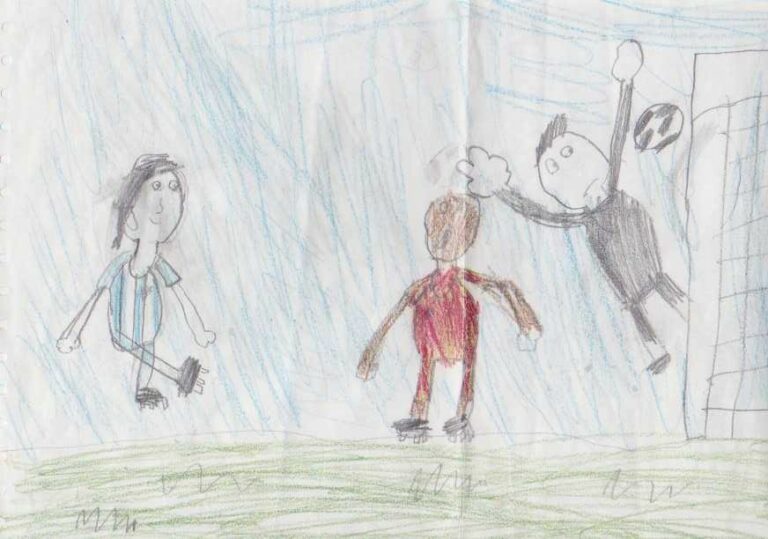Ground rules: catch them being good!
In most parenting dilemmas, we have a choice about how to respond. Often, the decision boils down to a choice between being a policeman or a coach.
Put crudely, the job of a policemen is to catch people doing things wrong and punish them for it. Whereas a coach is someone who helps you to develop better ways of doing things.
For me, positive parenting is all about spending as much time wearing the coach’s hat as possible. That means catching children being good and encouraging them to do it more often.
Ground rules are a brilliant way of helping children focus on what good looks like and helping them do it more often. If there is a particular behaviour that you want to change, rather than focusing on using consequences to minimise that behaviour, think about introducing a ground rule to maximise the right behaviour.
Ground rules should always be positive so that they clearly tell children the right behaviour. For example, if shouting is the problem then the rule might be ‘Speak quietly in the house.’ Or if rudeness is the issue, then ‘Speak kindly.’ Choose words that your child will understand and go through examples with them of what behaviour is within the rule and what isn’t.
Once the rule has been clarified, be on the lookout for rule-keeping rather than rule-breaking. Acknowledge every quiet voice (“Well done for speaking quietly, I really like that!”) or every kind word (“Thank you for asking so politely in such a nice voice!”). Be enthusiastic and sincere – after all, you really do like that behaviour and want more of it! If it is especially difficult or entrenched behaviour, you could back up the praise with a reward chart (or with extra tech minutes for older children).
And if they get it wrong? Remind them what good behaviour would look like and give them a second chance to get it right. (“Remember our rule about speaking kindly? Please can you show me how you can do that.”) You will still need a consequence up your sleeve in case the prompting doesn’t work but remember to keep the attention paid to poor behaviour low key compared to the praise for good behaviour.
The really great thing about ground rules is that as well as using them in the house you can also use them out and about in ‘high risk’ circumstance (i.e. those times when behaviour is likely to get out of hand or where poor behaviour would be especially stressful). Setting out a few clear specific rules before children go into circumstances they might find challenging (like long car journeys, weddings or eating in restaurants) can make a big difference. And you might also spell out a nice thing that will happen if they manage to stick to the rules……
Keep your expectations reasonable and appropriate to your child’s age or you will set them up to fail. Focus on one problem behaviour at a time, and just a couple of rules not a whole rule book! You can phase out rules and rewards once the problem behaviour has faded and just praise every now and then to help them keep it up.
And don’t forget, ground rules should apply to everyone, including the adults.
As a parenting strategy, catching them being good has everything going for it. There’s very little preparation. It’s portable. It’s free (though the occasional surprise reward to go with the praise can really boost success rates). And more good behaviour means less time battling bad behaviour and more time to spend doing something enjoyable with the children (or, occasionally, if you must, the washing up).
For more about using ground rules when out and about, watch this short video.







So true Anita! We’ve found having ground rules everyone is expected to follow means the kids can coach the grown ups just as much as we coach them. Now our kids are teenagers, we tend to negotiate ground rules and I’ve noticed people are much better at self-regulating because they’ve contributed to what the rules are. Thanks for your thoughts on being a coach rather than a policeman. That’s a great way to see the parenting role, rather than trying to be a friend!
Nothing like a teenager for reminding you when you aren’t following the rules, for sure!